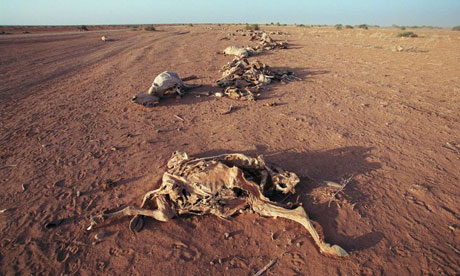Uganda: UN official visits country's ground zero of climate change and humanitarian woes
Visiting a semi-arid region of Uganda where the economic and environmental effects of climate change have been added to humanitarian needs and chronic under-development, the top United Nations emergency relief official today saw first-hand an area of potential conflict over increasingly shrinking resources. “They are living on the edge, daily facing the biggest challenges we must confront today as a global society,” Under-Secretary-General for Humanitarian Affairs John Holmes said of the people of Uganda’s north-east Karamoja region. “Climate change has brought increasingly frequent droughts and, with them, greater insecurity and water shortages.” The majority of the 1 million people are pastoralists or agro-pastoralists in one of Uganda’s most under-developed and politically marginalized areas. Whereas droughts used to occur every 10 years, narrowing to every five over the past 20 years, there have now been four consecutive years of drought and/or poor rainfalls. In January, the UN World Food Programme (WFP) launched an emergency operation to feed more than 970,000 people, 90 per cent of the total. Mr. Holmes visited Apa Lopama kraal, where 3,000 men and boys and 15,000 livestock subsist, and the Lobanya resettlement where nearly 900 people have moved to access more fertile land for planting. But the site sits on a major crossing between two districts, providing dry season grazing for pastoralists and increasing the potential for conflict over access to pasture, farmland and water during the October to April dry season. …
Uganda: UN Official Visits Country’s Ground Zero of Climate Change and Humanitarian Woes
